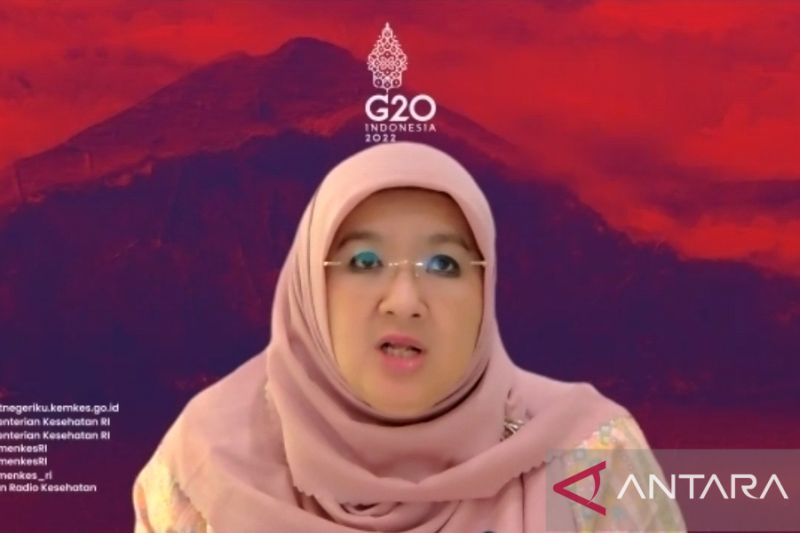
Screenshot - Spokesperson for G20 Indonesia Siti Nadia Tarmizi at a press conference on the Road To 2nd HMM network followed by Zoom in Jakarta, Friday (10/21/2022). (ANTARA/Andi Firdaus)
To prepare for the next pandemic and global health threats, every country must have access and capacity to develop vaccines, therapies, and diagnostics regardless of their economic and geographical statusThe Indonesian Health Ministry's G20 spokesperson Siti Nadia Tarmizi affirmed that the G20 member countries evaluated gaps and mapped the current conditions related to the network of research and manufacturing centers for vaccines, therapy/treatment, and diagnostics.
"The gap in the capacity of each G20 country in dealing with the pandemic can slow down preparedness and response to COVID-19," Tarmizi noted in a press statement here on Saturday.
Tarmizi said the Health Working Group 3 (HWG3) team is currently preparing a gap analysis questionnaire for manufacturing and disease priorities that will be filled out by G20 member countries.
Indonesia and six other countries -- Argentina, Brazil, India, Saudi Arabia, Turkey, and South Africa -- have shown interest in collaborating to form an ecosystem for manufacturing and researching vaccines, therapies or treatments, and diagnostics.
The collaborative effort involves all G20 member countries and international organizations, focusing on building a network of research centers and production capacity in G20 member countries and providing access and equity for middle-income countries.
Related news: 2nd G20 HMM outlines 6 actions to improve global health architecture
Several vaccine manufacturing technology platforms have been developed, including mRNA, viral vector, adjuvanted protein sub unit, and inactivated vaccine, especially with their high effectiveness. However, most of the mRNA vaccines have been developed and manufactured by pharmaceutical companies in developed countries.
"To prepare for the next pandemic and global health threats, every country must have access and capacity to develop vaccines, therapies, and diagnostics regardless of their economic and geographical status," Tarmizi remarked.
In increasing global access and production capacity, knowledge sharing, capacity building, and technology transfer among G20 countries are important. One example that is considered successful is the production of Molnupiravir – an oral COVID-19 antiviral in low- and middle-income countries activated by The Medicines Patent Pool (MPP) Facility.
"Such a model is important to enable technology transfer for pandemic preparedness," she stated.
Related news: Space20 focuses on using space technology to tackle climate change
The construction of vaccine, therapeutic, and diagnostic manufacturing centers is an effort to expand access for lower-middle income countries and strengthen the global network of scientists in the field of public health emergencies.
"It shows that all countries have fair and equal access to vaccines. To achieve this, it is important to strengthen research and development capacity, diversify supply chains, and enhance collaboration between countries and between public and private research centres," she said.
The spokesperson also said that apart from focusing on vaccines, therapies, and diagnostics, the next important aspect is to ensure equitable access and capacity in developing diagnostics and therapies to enable better access in the face of future pandemics.
Related news: One Health approach vital to address antimicrobial resistance: G20
"Without diagnostics and therapeutics, it will be difficult to prevent further transmission, treat early, and prevent death," she affirmed.
Meanwhile, Indonesia and six G20 member countries, especially those in the southern region, have agreed to establish a network of research and manufacturing centers for vaccines, therapy and treatment, and diagnostics.
"The G20 countries also highlighted the importance of avoiding unnecessary duplication and fragmentation in our efforts to strengthen research and development networks for vaccine, therapeutic and diagnostic manufacturing globally and regionally," the Ministry's Director General of Pharmaceuticals and Medical Devices Lucia Rizka Andalusia stated.
Related news: G20 health ministerial meeting delivers six key actions for summit
Related news: Denpasar gov't, military, police clean mangrove ahead of G20 Summit


















